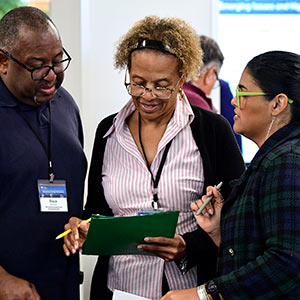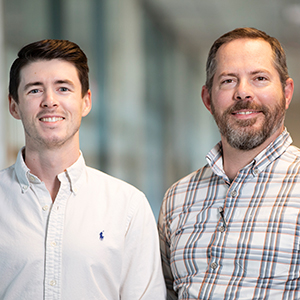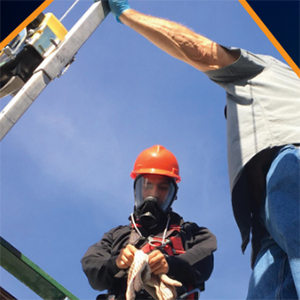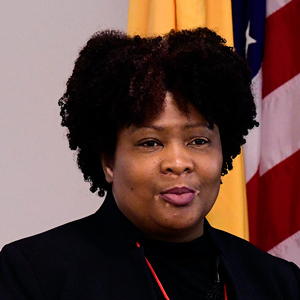Improving mental health for families and communities disproportionately exposed to environmental and social hazards was the focus of a two-day workshop held by Yale University's Elevate Policy Lab in late May.
 Hahn is executive director of Elevate Policy Lab in the Office of Public Health Practice at the Yale School of Public Health. (Photo courtesy of Yale School of Public Health)
Hahn is executive director of Elevate Policy Lab in the Office of Public Health Practice at the Yale School of Public Health. (Photo courtesy of Yale School of Public Health)Community stakeholders, academic researchers, philanthropic groups, policymakers, and federal agencies — including NIEHS Worker Training Program (WTP) staff — discussed a framework called Triple Bottom Line Justice (TBLJ). According to the Elevate Policy Lab, TBLJ involves simultaneously tackling health, economic, and environmental challenges to address the causes of health disparities.
Presenters discussed ways to strengthen family and maternal mental health across various public health challenges, including food, employment, and economic insecurity, and exposures from brownfields and other hazardous waste sites.
“Yale Elevate Policy Lab was founded to build innovative and scalable solutions to support caregivers from disadvantaged communities as they seek health and well-being, pursue social and economic mobility, and foster environmental resiliency for themselves, their families, and their communities,” said Hilary Hahn, the organization’s executive director.
Poor mental health affects workers, safety
WTP Director Sharon Beard and Program Analyst Jim Remington engaged in a breakout session that explored the intersection of family mental health and environmental worker training. Participants explained that mental health and worker health are inextricably linked. An unsafe work environment can lead to mental health problems, and poor mental health can affect safety in the workplace.
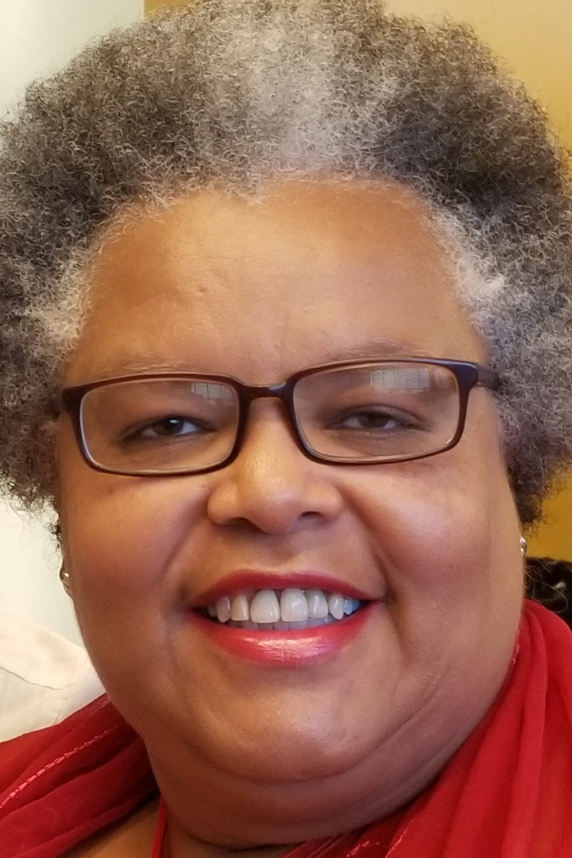 Beard is a member of the American Public Health Association and the American Conference of Governmental Industrial Hygienists. (Photo courtesy of Sharon Beard / NIEHS)
Beard is a member of the American Public Health Association and the American Conference of Governmental Industrial Hygienists. (Photo courtesy of Sharon Beard / NIEHS)One strategy discussed is the need for more mental health training, such as through Elevate Policy Lab’s MOMS Partnership and Civic Justice Engagement Training, which address stress management for disadvantaged mothers and legal tools to overcome environmental stressors. Other strategies that were shared include increasing access to mental health training for workers and improving conversations in the workplace to destigmatize mental health challenges.
“WTP supports efforts to train workers on mental health and stress,” Beard said. “For example, Make the Road New York, a community health worker training program under WTP grantee Atlantic Center for Occupational Health and Safety Training, is helping New York City workers build resilience, deal with stress, and reduce occupational exposures.”
Supporting communities, building climate resilience
Workshop speakers also touched on climate change as a threat to mental health and psychosocial well-being.
John Balbus, M.D., interim director of the new Office of Climate Change and Health Equity (OCCHE), which is housed in the U.S. Department of Health and Human Services, discussed the connection between climate change, mental health, and Triple Bottom Line Justice.
Balbus shared a quote from a recent paper by Howard Frumkin, M.D., titled “Hope, Health, and the Climate Crisis”: “We must nurture and sustain hope if we are to meet this challenge [of climate change]. Faced with the threat of climate change, health professionals can care for ourselves, our patients, and our communities, by resolving to nurture hope, and by marshalling evidence, empathy, and fortitude in doing so as effectively as we can.”
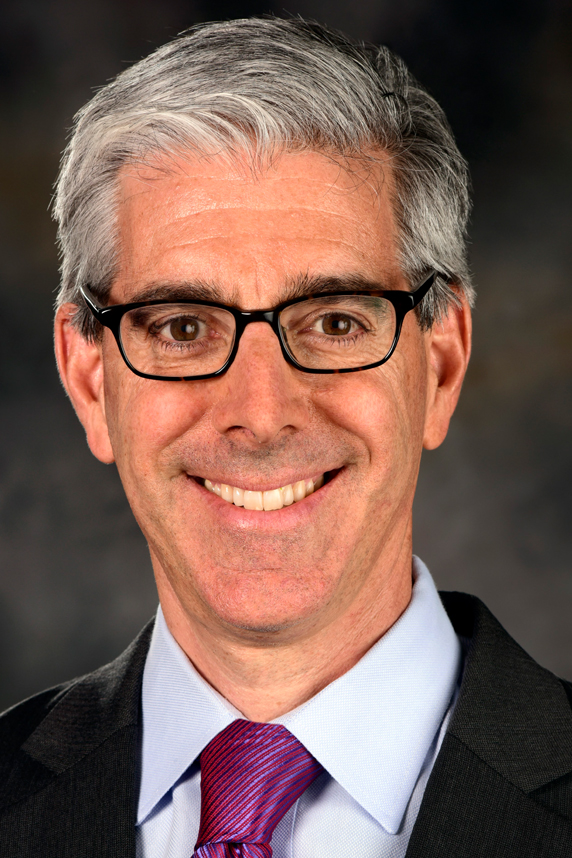 Balbus was elected to the National Academy of Medicine in 2018. (Photo courtesy of Steve McCaw / NIEHS)
Balbus was elected to the National Academy of Medicine in 2018. (Photo courtesy of Steve McCaw / NIEHS)According to Balbus, OCCHE is addressing family mental health challenges from climate change through several approaches.
- Building climate change resilience.
- Recognizing the root causes of environmental issues.
- Working directly with the health sector to provide adequate care.
There are many ways for families and youth to get involved in climate change resilience, especially by starting at the community level. Many of these programs have federal support.
“Federal agencies, like OCCHE, are supporting community organizations to get families and youth involved in climate change resilience in their own communities,” Balbus said. “Such organization focus on health equity, urban gardening, and continued training and education for adults and youth.”
Also, the NIEHS Worker Training Program offers Disaster Worker Resiliency Training materials(https://tools.niehs.nih.gov/wetp/?id=2528) for workers and communities affected by climate disasters. The materials address unmet mental health and resilience needs that can arise after one disaster or multiple disasters.
New approaches and collaboration are key
Addressing mental health for families and workers will require innovative approaches and multilevel collaborations, according to workshop participants. They expressed a need for more mental health providers at the community level and building a mental health workforce that is representative of the communities they serve.
“We need to expand the conversation about mental health in the workplace and in the community,” said Mariel Mendez, associate program officer at Perigee Fund, a sponsor of the workshop. “It's important to acknowledge the intersection between these two areas.”
(Meredith Hernlund is a research and communication specialist for MDB, Inc., a contractor for the NIEHS Division of Extramural Research and Training.)





